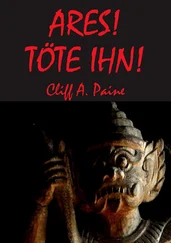Trapped, like the rest of them.
She didn’t like the track this train of thought was taking, so she prompted, “So, what was it about Belladonna, then?”
The boy leaned back against the yielding skin of his bubble. Sweetness tried not to think of the terrible void outside.
“No kids.”
“Explain this.”
“Not the city—never got out into the city, not the city proper. The station. I walked down the platform on to the concourse and just stood there, looking around me, because I knew something wasn’t right, so, but I couldn’t smell what it was. I mean, there were travelling people and staff and people selling food and shining your shoes and reading your cards and selling you travel insurance and all that passenger stuff but there was something not right. Something missing, you know? So there I was, standing under the Diamond Clock with all these people rushing around past me and then it hit me. Where were the kids?”
Sweetness understood. Not passenger stuff. Not the grouchy four-year-olds dressed in their breeches and frocks for their Dedication at the shrine of their Celestial Patroness. Not the bouncy T-shirts and shorts kids off for their holidays at the seaside or in the mountains or some desert spa. Not the school parties roped together by the wrists off on an educational jolly to the chasmside colleges of Lyx. Not the commuting high-schoolers burning holes in the upholstery with their illicit cigarillos, stopping off at the shopping levels before traipsing on home. The track kids. The seen-but-unseen kids. The world’s mainline termini teemed with vermin children: water sellers, hotel touts, street performers, beggars, get-rich-quick pamphleteers, hawkers of burgled goods, apprentice pimps, rent-boys, sucky-sucky girls, shoe shines, con-artists, muggers, teen dacoits, cut-purses, luggage-slicers, street sleepers and trash. Those pinched ferret faces Sweetness had seen peering up between the sleepers. In her professional capacity, she accepted them as you accept fleas on a dog, had even come to relegate them to background noise, as trainpeople of necessity learn this skill, but any station, let alone Belladonna Main, with its five million transits every day and night, without kids was more than peculiar. It was improper. It was a full quarteryear since Catherine of Tharsis had last drawn in to a stand on the crystal cantilevers of Belladonna Main—a succession of dreary if lucrative heavy haulage contracts had kept the trainfolk out on the industrial circuit—but such a total pogrom of the vermin could only have come from radical changes in station hierarchy.
“Karen Kupelski,” Pharaoh said quietly. The high winds soughed in the support webbing. “Concourse and Franchise Management. Heard about her later. After, you know.”
“She cleared out all the tunnels and chased them off the concourse.”
“More’n that. She sold them. Made a lot of cash out of the deal. That was the idea; they were going to put out shares or something like that, I don’t know; anyway, they need a boost of quick cash, so Karen Kupelski, she’s three weeks in the job and says, I got an idea! Watch me kill two birds with one stone! In come the railway police with torches and hunting cheetahs and sonics and gas and all that. Rounded them all up, put them in containers, shipped them out as night freight. Result, happy shareholders and passenger complaints way down for the quarter. There’s a lot of people out there’ve got a use for a spare kid. Them ones I lifted you from…”
“The furniture folk.”
“Them, they’re not the worst by any means. Not by a long way, no.”
Children as resources. Feedstock. Sound economic sense to recycle your trash. Sweetness shivered: memories of being an almost-chandelier. She thought about the others, ever-ready for dinner, shedding light from a plastic flambeaux, then unthought, guiltily.
“So what did you do?” she asked.
“Tell you something, if I hadn’t twigged, if the nose hadn’t said, Something not right here, hey! Where’s the kids? they’d’ve had me. They were coming for me, lucky, I’ve got this eye for pattern, I can see patterns in things, know what I mean? I’m looking round at the crowd and suddenly I see that this guy and this guy and that woman and this guy are all heading toward me. So I leg it. Up and out; up the ramp, throwing people out of my way, all these passengers and their kids, get the hell out of my way! You know? Up to the first level, and up beyond that even. Right out, on to the surface. Tell you something, if they’d got me, God knows where I’d be right now.”
“Still a long way between there and here,” Sweetness coaxed.
Pharaoh tapped the star of scarred skin where he had sold his ear for freedom.
“From the top of Meridian Main, you got two choices. Horizontal, or…” He pointed upward. “And I heard her say, “Go up, boy. Go up.”
“Her? Who?”
“The one bought my ear. Remember? I told you sometimes I hear what she’s hearing. Other times, it’s like she’s talking to me.”
“Through your ear.”
“Through my ear. Still part of me. ‘Go up,’ she said. ‘I’m up here.’”
Sweetness did not want to say that the odds of the donee knowing the identity of the donor, let alone choosing to send a message to the ear’s erstwhile owner, were negligible. Multiply by the likelihood of Pharaoh emerging on the foot of precisely the correct one out of half a million roofpillars…But, in the realms of the psychic, there were no coincidences, and fewer unlikelihoods.
“Okay, so she told you to go up,” she said.
The first couple of kilometres were easy. Like the roots of the immense primeval trees in the Forest of Chryse (planted by St. Catherine herself, the legend went) the piers of Worldroof flared out in massive buttresses. This was the demesne of the lowest orders in the tower’s vertical society. From the condos and projects, dock workers and glass cleaners would toil up the zigzagging staircases to the express elevators that whisked them five kilometres up to their daily labour. Easy here for a ragged railrat to merge with the on-shift and try to blag a ride skyward. The eyes of elevator security, paid to protect the privilege of altitude by the tower-top mandarins who had massed nabob fortunes out of glass-cleaning contracts, were ever sharp for goondahs.
“Pass?” they said.
“Forgot it,” Pharaoh said with his best ingratiating smile. They bounced him, hard. The workers smirked. He cursed them all roundly, but it was no hardship. There was breakfast to be filched from the concessionaires and food-courts that had joined together to form catering districts around the elevators. Service stairs took him up the escalators of Dunny, a cloistered district of globular habitats clustered like clitorae in the crotches where the buttresses merged to form the pier. Here a race of petty professionals lived, bookkeepers, never accountants; legal clerks, never advocates; data processors, never systems designers. Bourgeois values are always held more tenaciously by those whose claim is slightest; the window-studded tenements were all gated and guarded by security men in black leather. No place to linger, and hi-speed escalators swiftly took Pharaoh up through half a kilometre of mall levels (a moment’s warmth, some scavenged centavos and a stolen bite) to St. Dominic’s Preview, the first of three that ringed the pillar at significant and spectacular points. The preview was a wide annular plaza where the pillar vertical began, a popular pet-walking, child-strolling and picnicking place for people of all classes from a kilometre up and down the spire. Mingling with the crowds—even on a midmorning work day—Pharaoh was aware for the first time of his altitude. All his morning’s climb had been facing the pillar, up stairs, along walkways loomed over by tight-packed buildings. Now he had clear blue air in front of him. It drew him to the edge. The boy from deep under Meridian Main learned the meaning of vista.
Читать дальше












